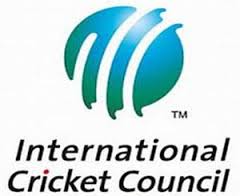Gideon Haigh, in The Weekend Australian 15 March 2014

 MIRPUR, a suburb to the north east of Bangladesh’s capital city of Dhaka, is home to a zoo, a botanic gardens, the head office of the country’s celebrated microfinance institution and, for the next two weeks, to world cricket. Half the group games and all the finals of the fifth World Twenty20, which begins on Friday, are to be played at Mirpur’s well-equipped Sher-e-Bangla National Cricket Stadium, including all those involving Australia; the balance will be held at Chittagong’s rather plainer ZA Chowdhury Stadium. Both cities should be in for an excellent ensuing fortnight. In its short history, the World T20 has had greater gram-for-gram impact than any global cricket event.
MIRPUR, a suburb to the north east of Bangladesh’s capital city of Dhaka, is home to a zoo, a botanic gardens, the head office of the country’s celebrated microfinance institution and, for the next two weeks, to world cricket. Half the group games and all the finals of the fifth World Twenty20, which begins on Friday, are to be played at Mirpur’s well-equipped Sher-e-Bangla National Cricket Stadium, including all those involving Australia; the balance will be held at Chittagong’s rather plainer ZA Chowdhury Stadium. Both cities should be in for an excellent ensuing fortnight. In its short history, the World T20 has had greater gram-for-gram impact than any global cricket event.
 India meeting Pakistan in the first game recalls the former’s victory over the latter in the inaugural final in Johannesburg, which lit the T20 touchpaper in the subcontinent, leading indirectly to the Indian Premier and Champions leagues. Zimbabwe beating Australia in the same tournament established a tradition of upsets, and no competitor since has enjoyed an obvious, ongoing ascendancy.
India meeting Pakistan in the first game recalls the former’s victory over the latter in the inaugural final in Johannesburg, which lit the T20 touchpaper in the subcontinent, leading indirectly to the Indian Premier and Champions leagues. Zimbabwe beating Australia in the same tournament established a tradition of upsets, and no competitor since has enjoyed an obvious, ongoing ascendancy.
Each of the four tournaments has had a different winner, plumbing depths then scaling heights being the essence of T20, while home ground advantage has been undetectable.
In 2009, hosts England lost to The Netherlands, and Pakistan triumphed. In 2010, hosts West Indies fell apart in the last eight, and England prevailed. Fifteen months ago, hosts Sri Lanka succumbed to the West Indies, ever more a cipher in other forms of cricket, but here ensuring the improbable inclusion in Wisden of the words ‘Gangnam Style’. Which actually wasn’t a bad description of the hitting in the tournament, no fewer than eight batsmen scoring at 150 per 100 balls or better.
In all, this World T20 promises to be an uplifting spectacle for a cricket-crazy country of more than 150 million people, being the first global event Bangladesh has hosted since the pathfinding ICC Knockout of 1998.
But it will also, on present indications, be the last – the last, in fact, to be held outside India, England and Australia for the next decade.
Here’s how the International Cricket Council’s events schedule looks as its next commercial rights cycle approaches. With New Zealand’s help, Australia will host next year’s World Cup, and also that tournament for stutterers, the 2020 Twenty20. England will host two one-day international events, the 2017 Champions Trophy and 2019 World Cup, between times. The 2016 World T20, the 2021 Champions Trophy and the 2023 World Cup will be held in India.
And errr, that’s it.
This process was set in train nearly eight years ago, when India, Australia and England charmed and cajoled the other full members into granting them the next three cups. Strange to recall now but India was loath to participate in the first World T20, holding the format in contempt. The Board of Control for Cricket in India’s representative at ICC was known for his repeated reverberating assertions: “India will never play T20 cricket. Never!”
In the end, the BCCI consented only as a quid pro quo for getting their hands on the World Cup first, in cahoots with Pakistan, Sri Lanka and Bangladesh. The rest is history: by winning that World T20 trophy, India turned it from a pewter tankard into a golden grail.
As ICC events have grown more valuable, so have hosting rights grown more coveted. As a result, we have entered into what might be described as the third stage in their history. When the ICC was run out of Lord’s, ICC events were also centred there: the first three World Cups and ICC Trophies were all held in England, with its natural advantages in infrastructure and distance.
The success of the fourth World Cup in India and Pakistan then preluded a period of globalisation: the Cup came to Australia and New Zealand in 1992, returned to Asia in 1996, visited Africa in 2003 and West Indies in 2007.
After its aforementioned start in Bangladesh, the ICC Knockout aka Champions Trophy visited Africa twice, England twice and Asia twice.
 And, despite the big three’s control of the Cup, just two and a half years ago, the ICC executive board signed off on a new strategic plan that not only proposed “independent evaluation of the cost/benefits of Olympic participation” but countenanced an event in a “targeted emerging market” – this was code for the possibility of a World T20 taking place in North America.
And, despite the big three’s control of the Cup, just two and a half years ago, the ICC executive board signed off on a new strategic plan that not only proposed “independent evaluation of the cost/benefits of Olympic participation” but countenanced an event in a “targeted emerging market” – this was code for the possibility of a World T20 taking place in North America.
Gradually, all such murmurings have faded, and if they had not been abandoned by the time that India, England and Australia staged their Dubai palace coup last month they have now.
Interestingly, one of Cricket South Africa’s “demands” in return for its support of the big three was for the right to host the 2027 World Cup, it being “patently unacceptable and unjustifiable for there to be no major ICC global event allocated to South Africa”. Answer came there none.
Furthermore, while Australia’s World Cup is set to be a 14-team competition, the next two will feature only 10 teams.
It used to be that the Champions Trophy was described as a “mini-World Cup”; the World Cup looks ever more like a “maxi-Champions Trophy”. Is it even right to call it a World Cup when more nations will compete in July’s World Wheelchair Basketball Championship in South Korea?
There is method to this.
Maximising commercial returns – which is, inevitably, the rationale for concentrating ICC events in the big three, as indeed it is the rationale for virtually everything in cricket these days – can legitimately be said to enhance distributions to the financially vulnerable full members.
Of course, under the new ICC regime of “contribution costs”, India, England and Australia have reserved for themselves the front of the profit queue, to be served more amply than everyone else. But in theory there should be more to go round generally.
The loss, in the main, is cultural and moral – to cricket’s pretensions as a global game, to its overall variety, accessibility and inclusiveness.
Denied a major ICC event for at least the next decade and possibly longer, fans outside the big three are effectively reduced to second-class citizens; actually, fans in Pakistan, denied international cricket since 2008 through no fault of their own, are already at that level anyway.
Of the Holy Roman Empire, Voltaire famously observed that it was neither holy nor Roman nor an empire. Perhaps the same will come to be said of the International Cricket Council – now barely a council, scarcely about cricket, and after this World T20 diminishingly international.
